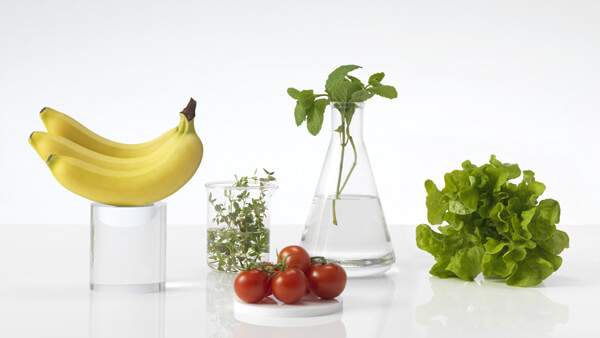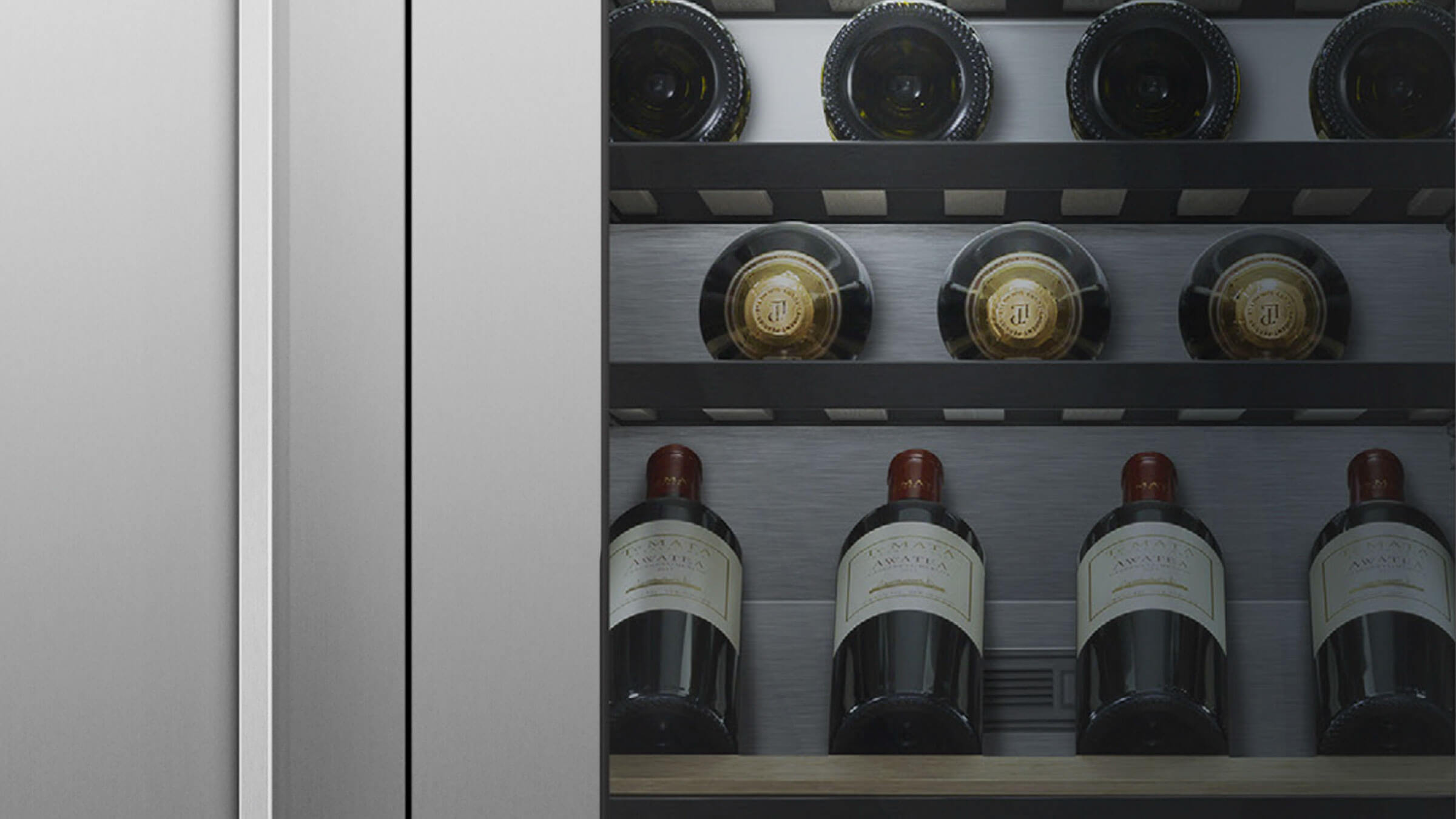Climate Control
Ultimate Kitchen Solutions
Experience the pinnacle of refrigeration with a suite of Columns that combine to make a bold statement and elevate the design aesthetic of the kitchen.
Choose to hero your refrigeration and wine storage with brushed stainless steel finishes, or integrate them into the kitchen cabinetry for an understated and clean look.
Carbon Impact
With a critical focus on carbon emissions, we are seeking to address the urgency of the climate crisis with speed and scale in multiple areas of our business. See our Carbon Impact Statement for details about our carbon emissions goals, strategy and roadmap.
Learn moreThe Preservation
Of Fresh
When we source food we not only choose the right ingredients for the culinary style, but also those that meet our own personal values – locally grown produce, organic ingredients, and sustainably farmed meat and poultry.
Fresh ingredients bring out bolder flavors in a dish and ensure our food retains all the nutrients that nourish us. Wine cellared properly will open with a true reflection of the vintage.
The best refrigeration provides the perfect environment for different ingredients, foods and beverages, preserving their flavors, colors and nutrients.
Preservation Principles
Temperature, humidity and storing complementary foods together to slow aging all play a role in keeping ingredients fresh and nutritious.
Conventional wisdom tells us that food stored cold lasts longer. But perfect storage conditions are also specific to the ingredient.
Salad
Greens such as lettuce, kale and broccoli benefit from high humidity – maintaining the natural moisture in these vegetables and stopping them from drying out.
Protein
At a temperature just short of freezing, fresh meats, poultry and fish will last longer, retain their vital freshness, and remain ready to cook without the need to defrost.
Wine
We know that wine ages best when cellared at 50°F to 55°F, but controlling humidity is equally important. Maintaining humidity between 55% and 75% stops corks drying out and minimizes oxidation.

The Science of Ripening
Respiration is what keeps produce growing when it’s on the tree or in the ground. After they are picked, most fruits and vegetables will continue to respire using their own natural sugars, which leads to ripening and eventually deteriorating.
We refrigerate fruits and vegetables to slow that process, helping apples stay crisp and lettuce fresh, leafy and green for longer.
Extended Life
While temperature slows respiration, humidity is the key to further extending the life of your produce.
Keeping leafy vegetables in a cool, moisture laden environment helps to slow the process of aging, keeping lettuce crisp and green, and spinach from wilting.
Back humidity off slightly to achieve the perfect environment for apples, grapes, capsicums, and other thin-skinned fruits.

The Art of Cellaring
Wine inherently does not want to survive. It is challenged by light, temperature, humidity, and agitation – all factors that can detract from the true representation of the estate. Cellar your finest bottles with exceptional UV filtering and in a climate that is customized to bring out the best characteristics, regardless of vintage or grape varietal.
Optimal Environments
By deeply understanding temperature and the core principles of refrigeration and storage environments, we have designed cooling appliances that can deliver the ideal conditions to help food stay fresher for longer, and wine to open exactly as the estate intended. Decades of innovation and our human-centered design approach have culminated in refrigeration that is flexible in its function, and precise in its delivery of temperature to suit every type of food or beverage.
Stability
Stratification is the measure of temperature evenness – top to bottom, left to right and back to front. It is how we manage the stability of temperature against a target range.
Humidity
A humid, low-temperature environment is ideal for most vegetables and thin-skinned fruits. Wine requires the right levels of humidity to stop corks from drying out and wine becoming oxidized.
Response
The refrigerator is one of the most opened doors in the household. To counteract ambient air entering and the cold air escaping we developed ActiveSmart™ – a clever control system that reacts and adapts to how you live.
Separate Spaces for
Fresher Produce
While apple and watercress may come together to form an amazing culinary creation in a salad, storing them in the same place before the meal is ready to come together can make for an underwhelming result on the plate.
A wide range of fruits produce ethylene as they ripen – a gas that speeds up the degradation of many vegetables and berries. Apples, kiwifruit, peaches and tomatoes are just some of the fruits in the modern kitchen that produce ethylene, while leafy greens, cucumbers, cauliflower and broccoli are highly sensitive to it.
Having the ability to store fruits and vegetables separately not only allows you to dial in the perfect temperature and humidity, but also ensures both remain fresher longer.
Pantry
Not everything benefits from cold storage. At colder temperatures, tomatoes lose flavor and become watery, cucumbers go mushy, and bananas quickly turn black but do not ripen.
Pantry Mode provides the ideal climate to bring selected fruits to the perfect state of ripeness so that flavors and nutrients develop, without over-ripening or drying out.
Chill
Dedicating a refrigerator compartment or CoolDrawer™ to Chill Mode is the perfect solution for everyday life or for entertaining.
At a temperature close to freezing, it is ideal for fresh meats, poultry and fish, keeping them as cool as possible to retain their vital freshness. With Chill mode, beverages can be brought down to temperature quickly so they are ready to serve when guests arrive.
Fridge
Storing everyday items such as fruit and vegetables, dairy, meats and drinks in Fridge Mode ensure they are ready to consume right away.
Kept in separate compartments that regulate humidity and temperature to give the perfect storage environment, food remains fresher, longer.
We want every part of the fridge to be as intuitive as possible, and designed to fit our customers’ needs. That’s why we take our cues directly from the people who own and use our products.
Mark Haydon, Chief Designer
Not All Freezing is Created Equal
Keeping foods below freezing is not just a question of what you are storing, but when – when in the maturation process of the ingredient it is being frozen, and when it will be consumed.
While a deep freeze is perfect for meat being stored for months to come, a lamb roast you plan to cook on the weekend needs a different treatment. It needs to be kept cold enough to keep the meat fresh, without the need to defrost and risk losing moisture and nutrients.
Soft Freeze
Soft freeze is for food that requires a gentle freeze and quick thawing, perfect for items that will be consumed soon. It allows easy portioning and the ability to heat, cook or serve straight from the compartment, without waiting for it to thaw.
Freeze
Freezing is the best cold storage for everyday foods, preserving their natural goodness for future use.
Ideal for preserving meat, poultry, seafood, precooked foods, fruit and vegetables, and keeping ice cream at the perfect consistency.
Deep Freeze
Deep freezing allows food to be stored for months or even years with temperatures that halt bacterial activity.
Freezing food quickly is the key to protecting its quality and retaining the nutrients so they are not lost when defrosting.